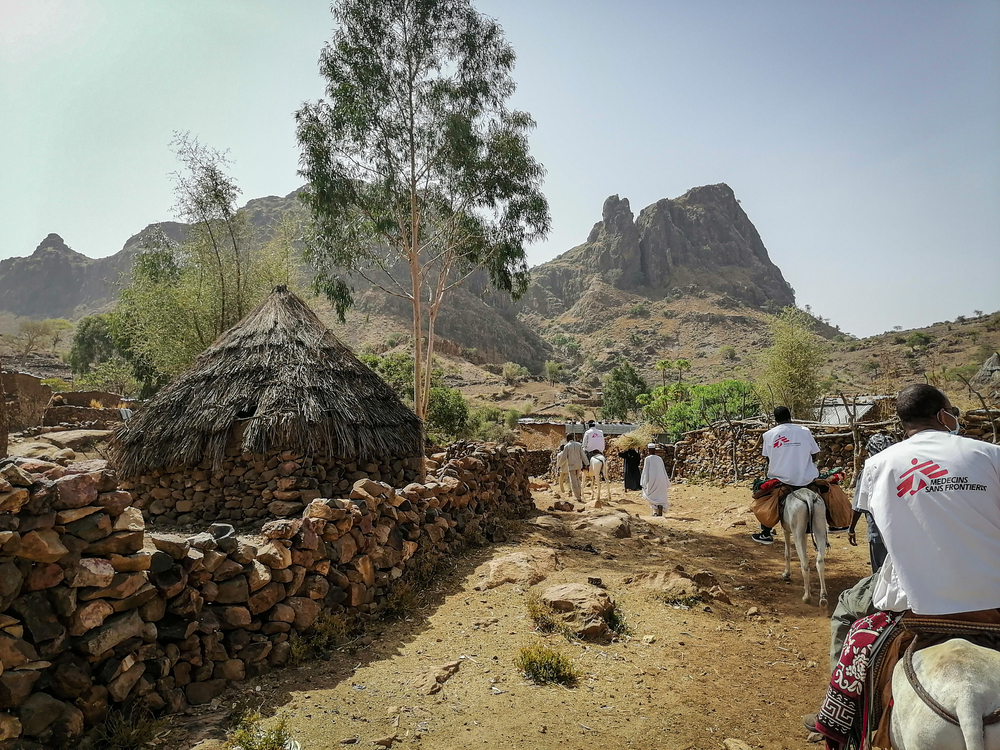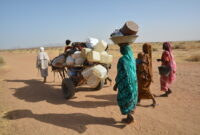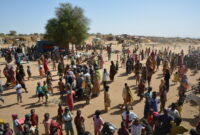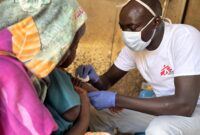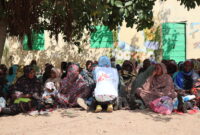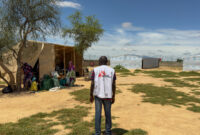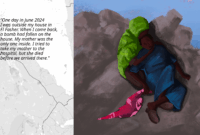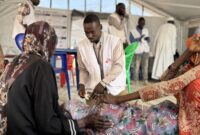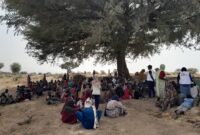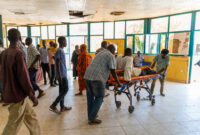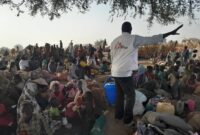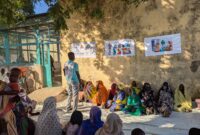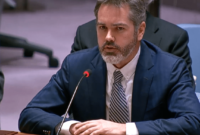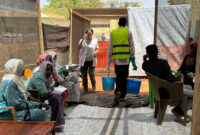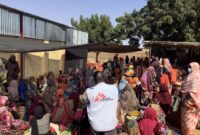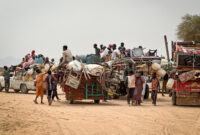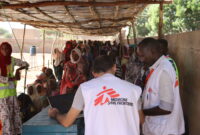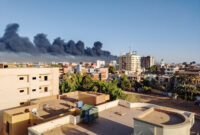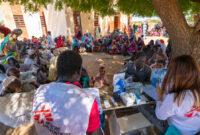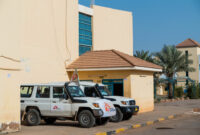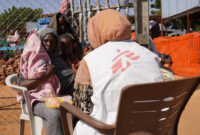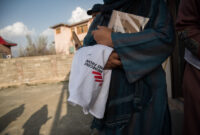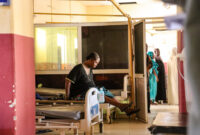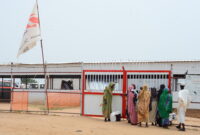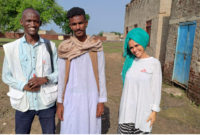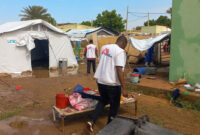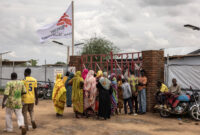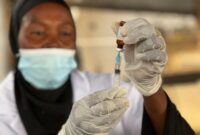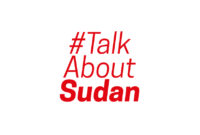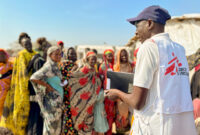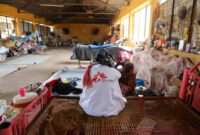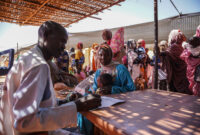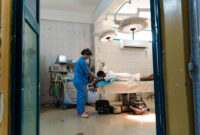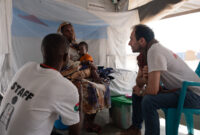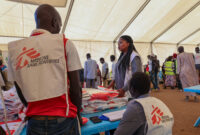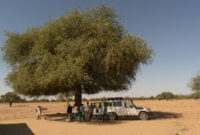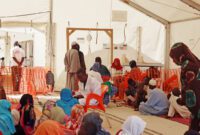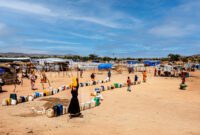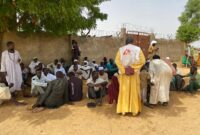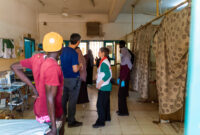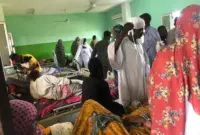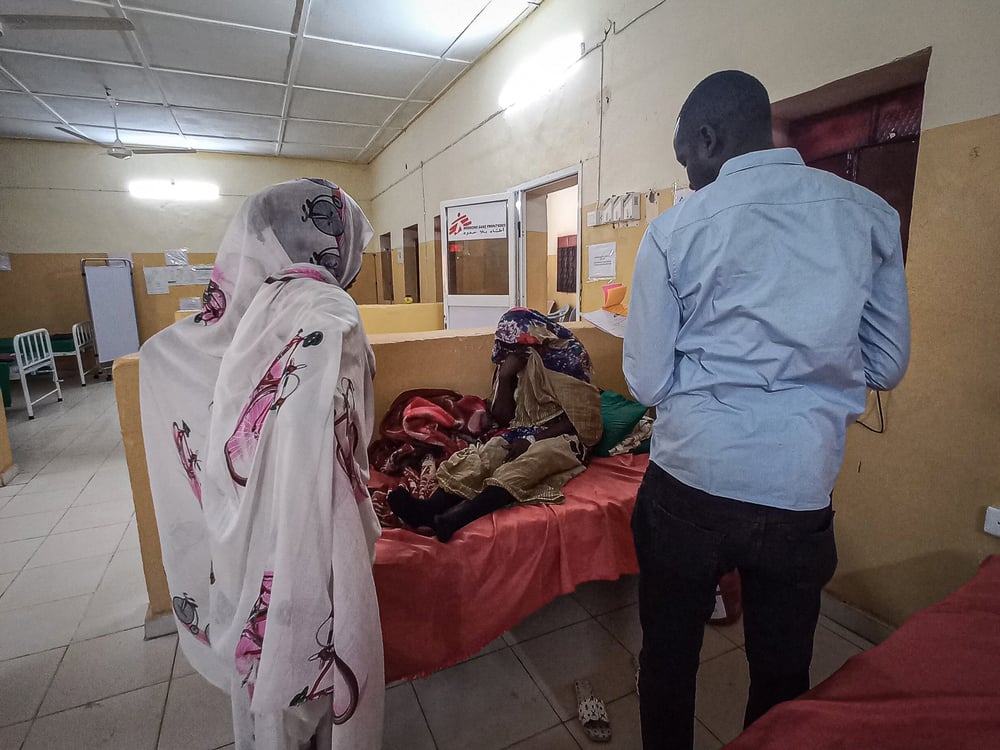Q&A: A Canadian Emergency Coordinator shares the catastrophic impact of war in Sudan
Canadian Ada Yee is an MSF emergency coordinator who has worked in over 17 countries, including Ethiopia, Syria, the Democratic Republic of Congo, Haiti, and Yemen. She recently completed a four-month assignment in Sudan’s South Darfur region and shares some insight on the impact of the war in Sudan.
17 months after war broke out in April 2023, a crisis of devastating proportions is unfolding. People have faced, and continue to experience, horrific violence, mass displacement, critical levels of food insecurity, and a health system pushed to the brink.
Q&A
What is the impact of the war in Sudan on healthcare and specifically on MSF’s activities?
About 70% to 80% of healthcare facilities across the country have been damaged, destroyed or looted. Seventeen months after the start of the conflict, most of these health facilities are still dysfunctional or unable to operate. Due to the conflict and active areas of fighting, healthcare options are limited. MSF has had direct attacks on our healthcare facilities, especially in the last three months.
“I saw with my own eyes some soldiers coming with cars to our home. My older brother was asleep, and they shot at him; they stole all our belongings and cattle. They set fire to the house, trapping my brother inside,” says a returnee in Daguessa, Chad, August 2023.
MSF faces enormous challenges, and I can speak best about South Darfur where I was based, where we need to navigate an incredible amount of bureaucracy. It is very difficult to bring people and supplies into the area. There is an active conflict going on in many parts of the country, with many active frontlines, which make it difficult for us to get supplies or people across those lines and into different areas. Additionally, there is a lack of international organizations and NGOs that can function and operate in the areas where we are.
“Bombs were falling everywhere, and soldiers were entering houses. I saw many people dead. A bomb fell next to my house, too. […] I lost 5 people in my family, 2 women and 3 men. A bomb fell on their house while they were asleep. They all died,” says a Sudanese refugee, Chad, June 2023.
What is the impact of the war on families and communities?
There is an incredible lack of health care options, food, facilities and services in general. The mobile communication network in parts of Darfur has been down for months. The water network is down, the electricity network is down. Basic infrastructure has not been in place since the war started. The economy is bad; it is difficult for people to make a living.
A huge number of people have left their homes. They have either fled the country or are displaced within Sudan. I have heard incredible stories from people about how many times they’ve been displaced; how many family members have been killed since the conflict started.
What are the gaps in the humanitarian response?
In South Darfur, where I worked, many international NGOs under the UN umbrella as well as other international organizations that had a presence there before the conflict started have been unable to come back. They are restricted by many administrative barriers and are concerned about the lack of security. Nevertheless, the lack of will to overcome these challenges is profoundly disappointing given the huge needs.
Many factors have led to the current situation in which few international actors are doing any kind of humanitarian or medical response. That makes the job of MSF incredibly difficult. There is a massive number of needs, and we cannot do everything. It’s very difficult to make choices on what to prioritize, what to tackle first. MSF has advocated for other organizations to step up their support.
“The war has directly increased symptoms such as sleeping disorders, loss of appetite, mood and post-traumatic stress disorders. We see many patients whose relatives were abducted or raped. They stop eating, sleeping, engaging with others. Some wake up at night and start screaming due to nightmares. It’s the pain, the trauma, the stigma. It’s all the stories they’re not ready to tell,” says a MSF Mental Health Team Member, April 2024.
How MSF Is responding in Sudan
MSF is one of the few international organizations working on both sides of the conflict in Sudan. We currently run and support medical projects, including over 20 healthcare clinics and hospitals across 8 of Sudan’s 18 states. We employ 926 Sudanese staff and 118 international staff, and provide incentives to 1,092 Ministry of Health staff.
